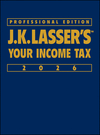What to Do If You’ve Been Scammed
While the Bernie Madoff scam came to light in 2008, there continues to be a seemingly unlimited number of fraudulent investment schemes afoot. Those promoting these schemes can be very convincing, and taxpayers lose millions annually. Fortunately, Uncle Sam shares in the loss by permitting certain write-offs for losses due to scams. Here are your write-off options:
Theft loss. If you can show that the scam constitutes a theft under state law, then the loss becomes deductible as an ordinary loss. The loss is claimed in the year in which the theft is discovered; the amount of the loss must be reduced by any recoupment (e.g., a loss-protection arrangement, SIPC insurance).
Special treatment. Investors who fall victim to fraudulent investment schemes but who may be able to recover some of their losses can use a safe harbor rule to take an immediate tax write off. A current deduction is allowed for a percentage of the net loss:
- 95% of the amount if a third-party recovery is not pursued
- 75% of the amount if the investor intends to pursue a third-party recovery
The safe harbor can only be used by those who invested in the fraudulent arrangement via a taxable account, and the investment must have been made directly, not through a fund, partnership, or other entity. Losses in IRAs and other tax-deferred retirement plans invested with a scheme do not qualify for the safe harbor. The financial loss is treated as a theft in the year in which any of the following occurs:
- The lead figure is charged under federal or state law with fraud, embezzlement, or a similar crime. If the lead figure dies before being indicted, this does not prevent the use of the safe harbor.
- The lead figure admits guild or a receiver or trustee is appointed or assets are frozen.
- The assets of the investment scheme are frozen or a receiver or trustee is appointed after a state or federal agency files a civil complaint alleging a fraudulent conduct by the lead figure, and the lead figure dies before being charged with criminal theft.
Note: Because the loss involves income-producing property, the floors for personal-use property ($100 and 10% of adjusted gross income) do not apply.
Capital loss. If you can’t prove that a theft took place, you can still take a capital loss. The loss can offset capital gains and then up to $3,000 of ordinary income. Any capital loss exceeding capital gains and $3,000 of ordinary income can be carried forward indefinitely and used accordingly in future years.
For example, in one case a couple was victims of a “pump and dump” scheme. They invested over $500,000 in a microstock (penny stock) of a company that sold soap-filled sponges and other household products. In reality, this company, which was an “over the counter” stock, did very little business. But its executives touted fictitious sales in an effect to drive up the price of the stock; the insiders then dumped their holdings, leaving this taxpayer and other investors holding worthless stock. The executives were convicted on criminal fraud charges and the company was permanently barred from trading. The couple wanted to take a theft loss deduction, but a district court said no. Under state law (Ohio in this case), there must be an intentional taking of property. Due to the lack of direct connection between the wrongdoer and the victim here, a theft loss generally is not allowed for shares purchased on the open market due to the decline in value. The couple was not specifically targeted by the executives here. Bottom line: Their only write-off option is a capital loss.
Note: When securities become worthless, you have seven years in which to discover the loss and file an amended return to report them.
Conclusion
Being fooled financially can hurt. Tax write-offs ameliorate the pain.
Nonperiodic distributions
A 20% withholding rule applies to nonperiodic distributions, such as lump-sum distributions, paid directly to employees from an employer plan.



